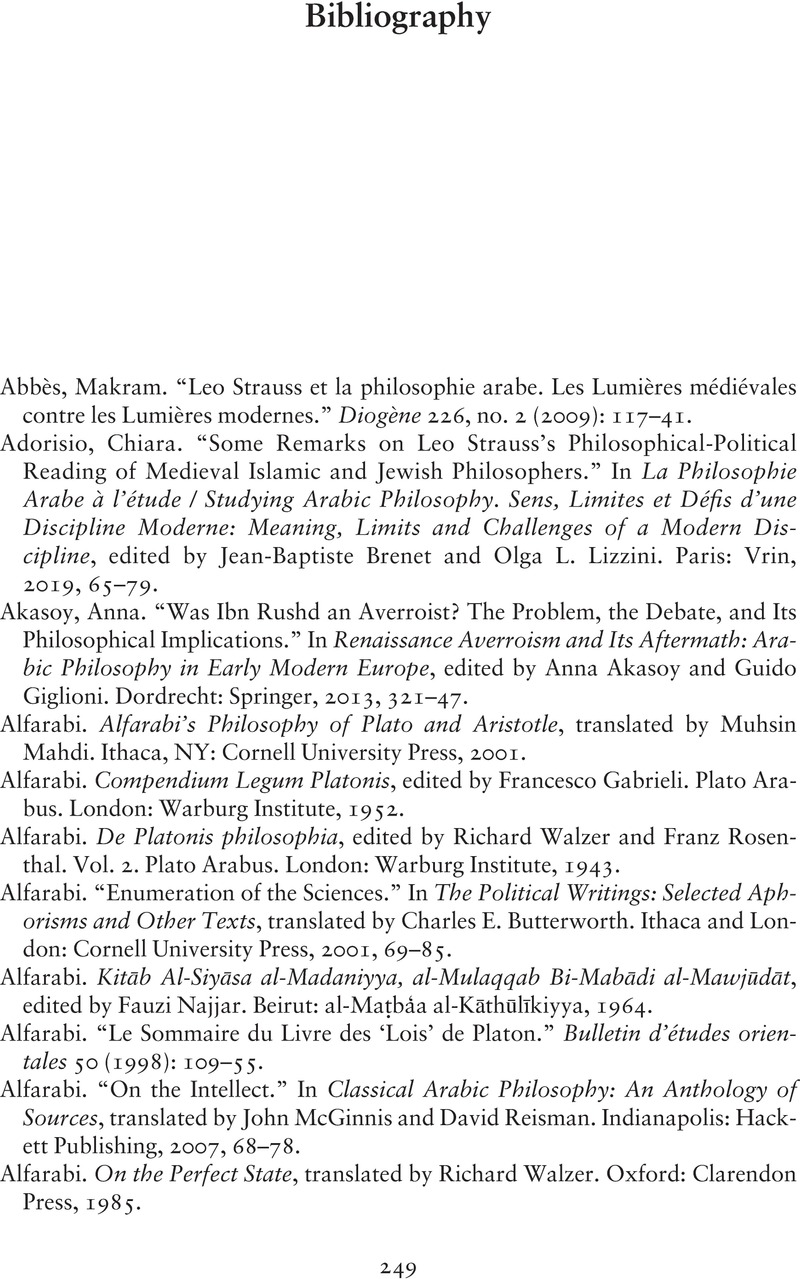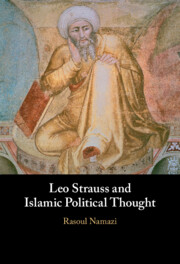Book contents
- Leo Strauss and Islamic Political Thought
- Leo Strauss and Islamic Political Thought
- Copyright page
- Dedication
- Epigraph
- Contents
- Preface
- Acknowledgments
- Note on Citations
- Introduction
- 1 Averroes between Platonic Philosophy and the Sharīʻa
- 2 Politics, Religion, and Love
- 3 From Alfarabi’s Plato to Strauss’s Alfarabi
- 4 Strauss, Alfarabi, and Plato’s Laws
- Book part
- Bibliography
- Index
- References
Bibliography
Published online by Cambridge University Press: 23 June 2022
- Leo Strauss and Islamic Political Thought
- Leo Strauss and Islamic Political Thought
- Copyright page
- Dedication
- Epigraph
- Contents
- Preface
- Acknowledgments
- Note on Citations
- Introduction
- 1 Averroes between Platonic Philosophy and the Sharīʻa
- 2 Politics, Religion, and Love
- 3 From Alfarabi’s Plato to Strauss’s Alfarabi
- 4 Strauss, Alfarabi, and Plato’s Laws
- Book part
- Bibliography
- Index
- References
Summary

- Type
- Chapter
- Information
- Leo Strauss and Islamic Political Thought , pp. 249 - 268Publisher: Cambridge University PressPrint publication year: 2022

